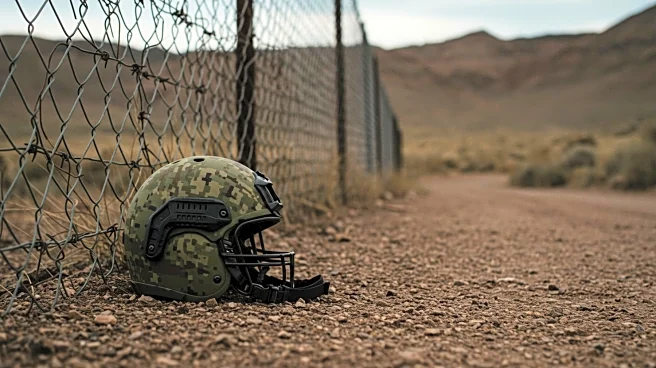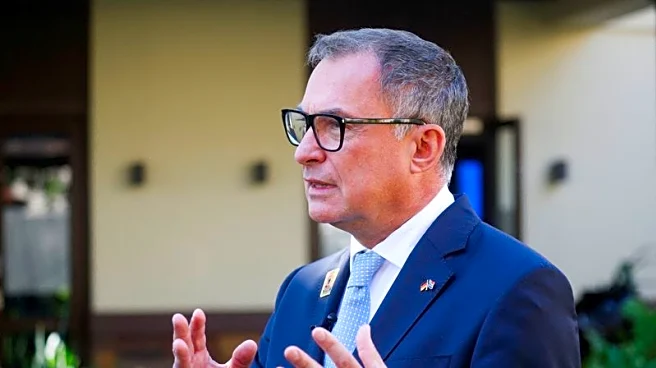What's Happening?
The Thai Army has issued a warning that it may resort to 'self-defense' in response to ongoing incidents along the Thai-Cambodian border, where Thai soldiers have been injured by land mines. According to a statement by Thai Army spokesperson Maj. Gen. Winthai Suvaree, a Thai sergeant was severely injured after stepping on an anti-personnel landmine allegedly planted by Cambodian forces. This incident marks the fourth such occurrence in a month and the second since a ceasefire was established on July 29, following five days of armed conflict over disputed territory. The clashes have resulted in numerous casualties and the displacement of over 260,000 people. The Thai Army accuses Cambodia of violating the ceasefire and international humanitarian law, specifically the Ottawa Convention, which bans the use of anti-personnel landmines. Cambodia, however, denies these allegations, asserting its compliance with international law and its commitment to mine clearance.
Why It's Important?
The situation at the Thai-Cambodian border is significant due to its potential to destabilize regional peace and security. The ongoing tensions and accusations could lead to renewed conflict, affecting not only the two countries involved but also the broader Southeast Asian region. The use of landmines and the resulting injuries highlight the humanitarian and legal challenges in conflict zones, emphasizing the need for adherence to international agreements like the Ottawa Convention. The dispute also has implications for diplomatic relations and domestic politics within Thailand, as previous incidents have already strained ties and influenced political dynamics. The international community may need to intervene to mediate and ensure compliance with ceasefire agreements to prevent further escalation.
What's Next?
If the situation continues to deteriorate, Thailand may take military action under the guise of self-defense, potentially leading to a broader conflict. Diplomatic efforts may be necessary to de-escalate tensions and ensure both parties adhere to the ceasefire. International organizations and neighboring countries might play a role in facilitating dialogue and monitoring compliance with international laws. The ongoing border dispute could also prompt discussions on border demarcation and conflict resolution mechanisms in the region.
Beyond the Headlines
The conflict underscores the long-standing territorial disputes in Southeast Asia, which are often rooted in historical claims and colonial-era boundaries. The use of landmines raises ethical concerns about the impact on civilian populations and the environment, as these weapons can remain active for decades. The situation also highlights the challenges of post-conflict recovery and the importance of mine clearance efforts in ensuring safety and stability in affected areas.










